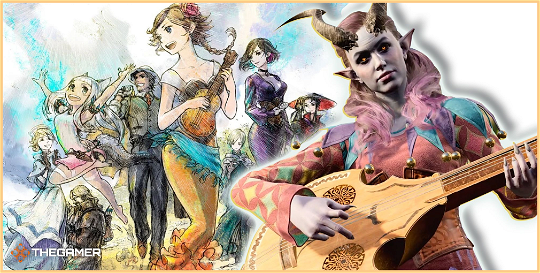So party-based RPGs are back, and we couldn’t be happier. It feels like we’re living in a golden age for party-based games, as the genre, which has historically been dominated by BioWare, has seen a resurgence over the past few years, in spite of the Canadian developer’s continued struggle. With lone-wolf RPGs like The Witcher 3 leading the way, and some of the industry’s biggest games shifting focus away from party-based experiences, it’s taken a while for the void left by BioWare to be filled, but it’s worth the wait.
Since its acquisition by Electronic Arts, BioWare has pivoted towards developing live-service games like Anthem. However, this hasn’t stopped other developers from stepping into the party-based RPG void left by the prominent developer. We’ve also seen a number of open-world games, like those from Bethesda, downplay the importance of companions. Nevertheless, these broader RPG elements found in Horizon Zero Dawn and Assassin’s Creed Odyssey have further marginalized party-based RPGs.
Then the comeback began.
While we’ve already had Obsidian’s The Outer Worlds in 2019, we’re also set to see a number of party-based RPGs in the coming years, as developers have stepped up to the challenge. Japanese developers, with titles like Octopath Traveler 2, have continued the party-based approach with gusto, and we’re also seeing some Western developers return to what they do best.
Obsidian’s upcoming game is a return to the party-based roots of the studio’s iconic games, Fallout: New Vegas, and it promises a whole bunch of crazy characters to meet and interact with.
Meanwhile, while the likes of Bethesda’s Starfield and the Elder Scrolls 6 are decidedly single-player experiences, we’re still seeing a return to the importance of companions, as well as the classic ‘choose your own adventure’ style of party-based RPG.
The Outer Worlds, by Obsidian.
While we’re still waiting for the release of The Outer Worlds, developer Obsidian has already shown it’s willing to embrace party-based gameplay, and it’s certainly not the last we’ll see from the studio. Elsewhere, Japanese developer Square Enix is set to deliver another dose of the party-based approach with the Octopath Traveler 2 release date, while Larian Studios is working on the ambitious Baldur’s Gate 3.
Meanwhile, Sabotage Studio is bringing back the Chrono Trigger model of party interactions with Sea of Stars, as the studio is promising a large cast of colorful characters to interact with, while also playing through the game’s main story.
Party-based RPGs are more than just experiences to share with virtual friends and frenemies, as these games often provide incredibly diverse experiences. What’s not to love about traveling to magical worlds with friends, fighting against impossible odds with the power of friendship, and all set to the soundtrack of our favorite JRPGs?
While BioWare may be struggling in the genre it helped pioneer, it’s great to see party-based RPGs making a comeback, and we can’t wait to find out more about Sea of Stars, as well as Baldur’s Gate 3 and Octopath Traveler 2, over the coming months.
Featured image: Obsidian.















